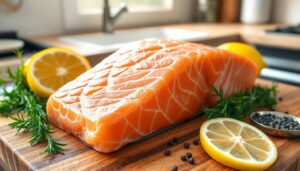
Does High Protein Diet Cause Constipation? Uncovering the Facts and Solutions
High protein diets are everywhere—promising weight loss, muscle gain, and better health. Many people have turned to these diets to reach their goals faster. But along with the benefits, some worry about side effects like digestion problems. Constipation is a common concern. People ask: can eating more protein lead to trouble going to the bathroom? In this article, we explore the real connection between high protein diets and constipation. We’ll look at what causes it, who is most at risk, and how to keep your digestion healthy while eating lots of protein. Let’s know does high protein diet cause constipation?
Understanding the Connection Between High Protein Diets and Constipation
The Role of Dietary Fiber in Digestion
Fiber is like the traffic cop of your digestive system. It helps keep things moving smoothly. It adds bulk to your stool, making bowel movements easier. People eating high protein diets often eat fewer fiber-rich foods like fruits, vegetables, and whole grains. These diets tend to focus on meat, eggs, and dairy, which might not have enough fiber.
Health experts recommend at least 25 grams of fiber daily for women and 38 grams for men. Many following high protein plans fall short of these targets. This shortfall can make bowel movements less regular and cause discomfort.
How Protein Affects Digestive Processes
Protein influences how your gut works. It affects gut motility—the way food moves through your digestive tract. When you eat a lot of protein, your gut slows down a bit, which might lead to harder stools.
Plus, eating excessive protein can change your gut bacteria. Good bacteria thrive on fiber and plant-based foods. If these are lacking, your microbiome can become unbalanced. This imbalance can make digestion less efficient and lead to constipation.
Potential Mechanisms Leading to Constipation
Several factors link high protein diets to constipation:
- Lower fiber intake: Less fiber means less bulk for your stool.
- Dehydration: High protein metabolism requires more water. If you don’t increase your fluid intake, dehydration can make stools dry and hard.
- Changes in gut bacteria: An unbalanced microbiome can slow digestion.
These factors can act alone or together, resulting in constipation when following a high protein plan.
Risk Factors and Populations More Susceptible
Dietary Patterns Combining High Protein With Low Fiber
Many popular diets high in protein also restrict carbs—think keto or paleo. These diets often cut out fiber-rich foods, making constipation more likely. For example, focusing on meats and nuts without enough vegetables can slow down your bowel movements.
Hydration and Fluid Intake Considerations
Water keeps everything moving in your gut. High protein diets increase the need for fluids to help process the extra nitrogen and other waste. Without enough water, your stool can become dry and tough, leading to constipation.
Many people unknowingly drink less water on high protein diets, thinking they need less. But staying hydrated is crucial for preventing digestion issues.
Medical Conditions and Medication Interactions
Certain health problems and drugs can make constipation worse when combined with a high protein diet.
- Conditions like irritable bowel syndrome (IBS) or hypothyroidism tend to slow digestion.
- Some medications—like pain pills, antacids, or iron supplements—can cause constipation.
If you have these issues, it’s especially important to manage your diet carefully.

Strategies to Prevent and Relieve Constipation on a High Protein Diet
Increasing Dietary Fiber Intake Safely
Add more fiber step by step. Include foods like
- Vegetables (broccoli, carrots, spinach)
- Fruits (apples, berries, pears)
- Whole grains (brown rice, oats, whole wheat bread)
Aim for a gradual increase to avoid gassiness or bloating.
Optimizing Hydration
Drink plenty of water—at least 8 glasses a day.
- Use hydrating foods like watermelon, oranges, and cucumbers.
- Keep a bottle nearby to remind yourself to sip fluids regularly throughout the day.
Incorporating Gut-Healthy Probiotics and Prebiotics
Support your gut bacteria with
These can boost digestion and regularity naturally.
Adjusting Protein Sources and Portion Sizes
Choose lean and minimally processed proteins.
- Opt for chicken, fish, or plant-based alternatives.
- Balance protein portions with fiber-rich foods for a well-rounded plate.
Avoid overdoing it—moderation is key.
Practical Lifestyle Changes
Move your body daily. A quick walk or light exercise helps your gut muscle work better.
Create a routine—try eating meals at the same time every day. Consistent eating habits support smoother digestion and regular bowel movements.
Scientific Insights and Expert Recommendations
Many experts agree that a balanced diet supports digestive health.
- Dr. Sarah Jones, a gastroenterologist, says maintaining enough fiber and water intake is essential, regardless of diet style.
- Clinical studies show that people eating high protein diets with ample fiber and fluids often don’t experience constipation.
Follow evidence-based tips: load up on fiber, hydrate well, and choose nutrient-dense foods to stay healthy inside and out.
Conclusion
While high protein diets can sometimes cause constipation, it’s usually because of missing fiber, dehydration, or microbiome changes. Making small adjustments—more fiber, plenty of water, and gut-friendly foods—can keep your digestion happy. Remember, balance isn’t just good for your muscles; it’s key for your gut too. Always talk to your healthcare provider if you’re unsure or have ongoing issues. Keeping your digestive system healthy allows you to enjoy all the benefits of a high protein lifestyle without the uncomfortable side effects.

